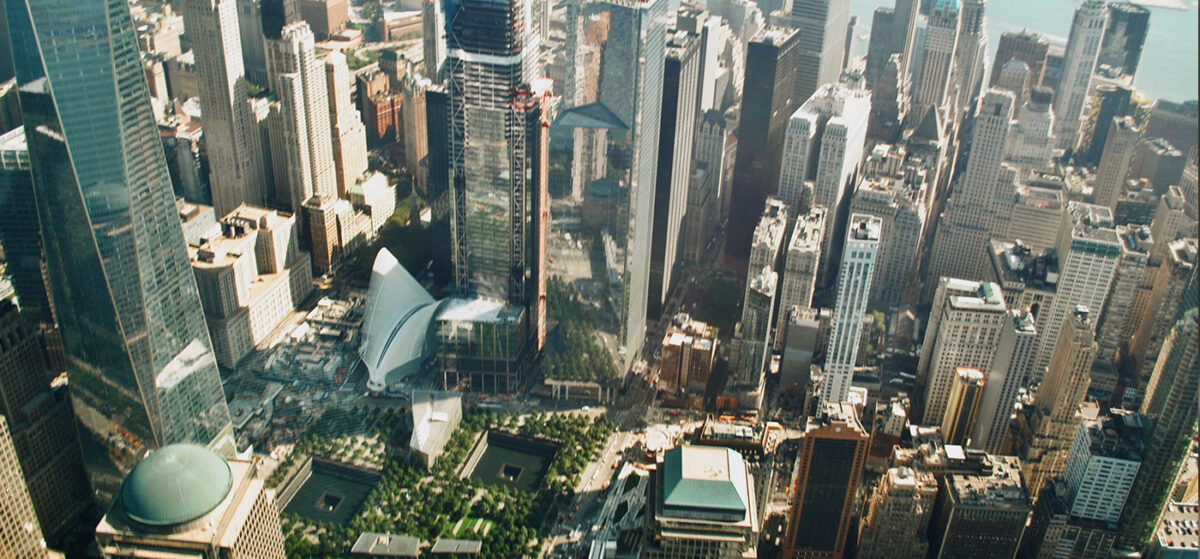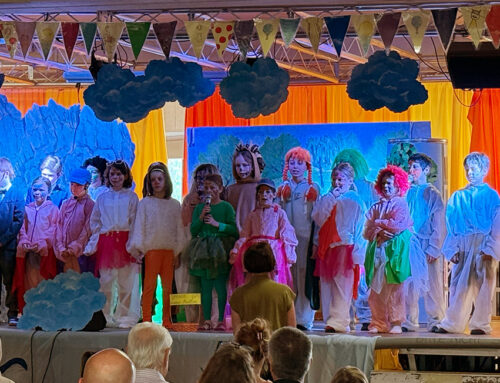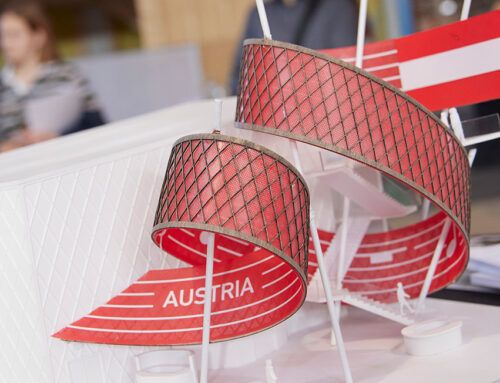More security with the cochlear implant in events like 9/11
Deaf people were also among those affected by the attacks on New York’s World Trade Center on 09/11, 2001, while some other survivors lost their hearing as a result of the events.

New York, September 11, 2001. Edwin King, a kitchen worker on the third floor of the South Tower, the lower of the two twin towers at the World Trade Center, began his shift preparing lunch. Today´s menu: stuffed shells and Jamaican chicken. At 8:45, he suddenly became aware of loud noise. “My first reaction was to look down at the floor and the floor was caving in!” The deaf man could not figure out what´s happening. “There were four of us in the department area at the time. Everyone left me behind – they just left! Hard to describe what I felt back then…” he remembers in the documentary “9/11 – Fear in Silence” [1]. In this documentary, Ann Marie “Jade” Bryan lets deaf survivors have their say.
“The ground was shaking,” Robert Jacaruso shudders. He was working on the 74th floor in the higher North Tower at the time. “All of a sudden, I felt the building swaying back and forth. Everyone dropped everything and rushed for the emergency exit. Everyone except me.” A colleague at work then helped him evacuate, around many flights of stairs. There was a panic in the air. Jacaruso remembers the stench of burnt skin that came with those fleeing from higher floors. “I had to be careful not to get in the way of the firefighters, because I couldn’t hear them!”
Cindy Aponte recalls, “Everyone was fleeing and I was simply walking straight into the danger zone.” Workers and visitors of the WTC were instructed through the loudspeaker how to behave. However, Jennifer Delora adds that “We deaf people couldn’t hear what was happening,”. Deafness and communication problems became a life-threatening danger at the World Trade Center that day.
Cancer, hearing loss and anxiety
Edwin King, Robert Jacaruso, Cindy Aponte and Jennifer Delora survived 09/11 attacks. How many of the 22 people with hearing loss were less lucky, is still unknown. In total, 2753 people lost their lives in the WTC attacks and many more were injured.
Even outside of New York, unintelligible loudspeaker announcements on that day caused fear and anxiety. On his USA flight, Kim, a deaf education teacher, saw on the information monitor that all flights were canceled. “National security,” the airport employee wrote on a note as an explanation and shrugged her shoulder. Kim describes how the other fellow passengers listened to a loudspeaker announcement for The San Diego Union-Tribune. “They looked worried, started talking on the phone frantically and commiserating with each other. It was a very lonely and anxiety-provoking moment for me.” One airport security guard helped him out of the difficult situation and explained what happened, but the fear of tragedy has accompanied him on all his flights ever since.
Around 400,000 New Yorkers suffered from PTSD (post-traumatic stress disorder) as a result of the attacks. First responders, survivors, and eyewitnesses have still been suffering numerous long-term physical consequences. One study demonstrated higher rates of chronic sinusitis and reflux disease, in particular among first responders, while survivors were primarily more likely to develop tumors [2]. The cause is likely to be the breathing air contaminated by debris and toxins.
According to one study, this health-damaging dust also affected the hearing ability of first responders and victims [3] . This was also the case for composer Jay Alan Zimmermann. He and his family were residents of the World Trade Center and he witnessed the disaster from the window of his apartment. “I have the feeling that one version of me died that day,” he says in an interview with ZDF describing his deafness after the attack. On top of that, chronic sinusitis and sleep disorders still accompany him today.
Twenty years later: hearing safety
Since 9/11, Jay Alan Zimmerman tries to add more depth to his life. “I try to make sure that what I am doing has value and meaning and helps other people as well.”
The destroyed World Trade Center has been rebuilt and consists of seven buildings. The tallest one, at 541 meters, is taller than the destroyed Twin Tower, which was 415 and 417 meters high. However, it ranks only sixth among the world’s tallest buildings today.
9/11 has not only left its mark on individuals, but it has also profoundly changed U.S. society. It triggered the U.S. intervention in the war in Afghanistan, which recently took a dramatic turn with the withdrawal of the occupying forces. Internationally, security measures at airports were significantly tightened in the wake of 9/11. None of this has been able to eliminate the threat of attacks or other crisis situations.
Accessibility has made its way into emergency and crisis management. Smartphones, internet and the associated communication options make many things easier today, but deaf associations still complain about serious deficiencies. Visual fire alarm and SMS emergency call often fail to cover unpredictable crisis situations. But, restoring hearing as good as possible and optimizing communication capabilities improve information and safety.
[1] Movie preview: https://www.youtube.com/watch?v=1aTsBXLEP7g
[2] https://www.scientificamerican.com/article/health-effects-of-9-11-still-plague-responders-and-survivors/
[3] https://www.ncbi.nlm.nih.gov/pmc/articles/PMC6848920/






